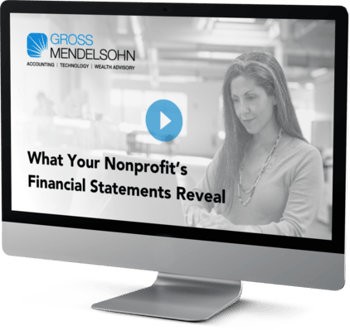A recent charitable giving report from Blackbaud Institute confirms that donations in the United States grew by 9% in 2021. This increase occurred for nonprofits of all sizes in all sectors, with 12% of charitable giving coming from online donations.
This uptick in charitable giving is, of course, excellent news for youth-focused nonprofits. However, your organization can benefit even more when your staff members are equipped to educate potential donors about some key tax benefits of charitable giving – beyond a simple cash donation.
To understand the big picture, let’s first dive into the reasons behind the increase in giving and then review two mutually beneficial donation strategies for taxpayers and nonprofits.
Two Key Reasons for the Uptick in Charitable Giving
There are two primary factors behind the uptick in giving:
- In response to the ongoing needs tied to the COVID-19 pandemic, giving continued to grow as well as the amount donated. Even as the world got back to “normal,” donations did not slow down as expected.
- Online giving is still increasing, with a 42% increase in online donations the past three years. Online giving has made it easier than ever for donors to interact and give to their favorite charities.
Two Win-Win Tax Planning Strategies for Youth-Focused Nonprofits and Donors
Outright gifts to charities generate a tax benefit and therefore are a great tax planning strategy for high income taxpayers. Even so, there is a limit to any donor’s generosity in any one year. But what if there were gifting strategies that allow the taxpayer to make non-cash donations of income producing assets without paying additional tax on the accumulated income?
Gifting appreciated stock and qualified charitable distributions (QCDs) are two win-win strategies for child-focused nonprofits and donors alike. Both provide immediate income tax savings to donors, as well as a source of current and future cash flow to the organization. We have found that our clients appreciate this flexibility and that charities recognize the benefit they are receiving.
Gifting Appreciated Stock
When a taxpayer donates appreciated stock, they can generally take a charitable deduction for the fair market value of that stock without having to pay any capital gains on the appreciated value. This allows donors to increase their charitable deduction significantly since they avoid the built-in tax.
They also have the option of donating stock to their own donor-advised fund. Once a contribution is made to this fund, the taxpayer will immediately be able to recognize a charitable donation and then, at their own direction and convenience, make donations to the child-focused charity they love. Our clients often find they have more flexibility and control over their donations, while enjoying less paperwork with this strategy.
Qualified Charitable Distributions (QCDs) — IRA Charitable Rollover
A QCD is a direct transfer of funds from an IRA account to a qualified charity. The donor will not receive a deduction for the donation because you do not have to recognize any income on the gift. Most importantly, the transfer to charities from an IRA can help donors in multiple ways:
- Adjusted gross income will be reduced and may result in tax savings on deductions limited by income. For example, if you itemize deductions, you might have smaller medical deduction limitations or contribution limitations because of your existing charitable giving.
- If you do not itemize deductions, a QCD to pay a charity you’d otherwise cover with an out-of-pocket gift, becomes tax free.
There are, however, some special requirements and limitations of QCDs, including:
- You must be 70 1/2 years or older
- A QCD cannot exceed $100,000 for any one taxpayer
- A QCD is limited to the amount that would otherwise be treated as ordinary income
Making a QCD can help by satisfying required minimum distributions (RMDs) and keeping income low. Also, donors do not need to itemize in order to take a QCD, so you can take full advantage of your charitable giving and receive the full standard deduction.
Need Help?
Contact us online or call 800.899.4623.
Editor's note: this article was originally published in 2019. It was updated with new information in 2022.


